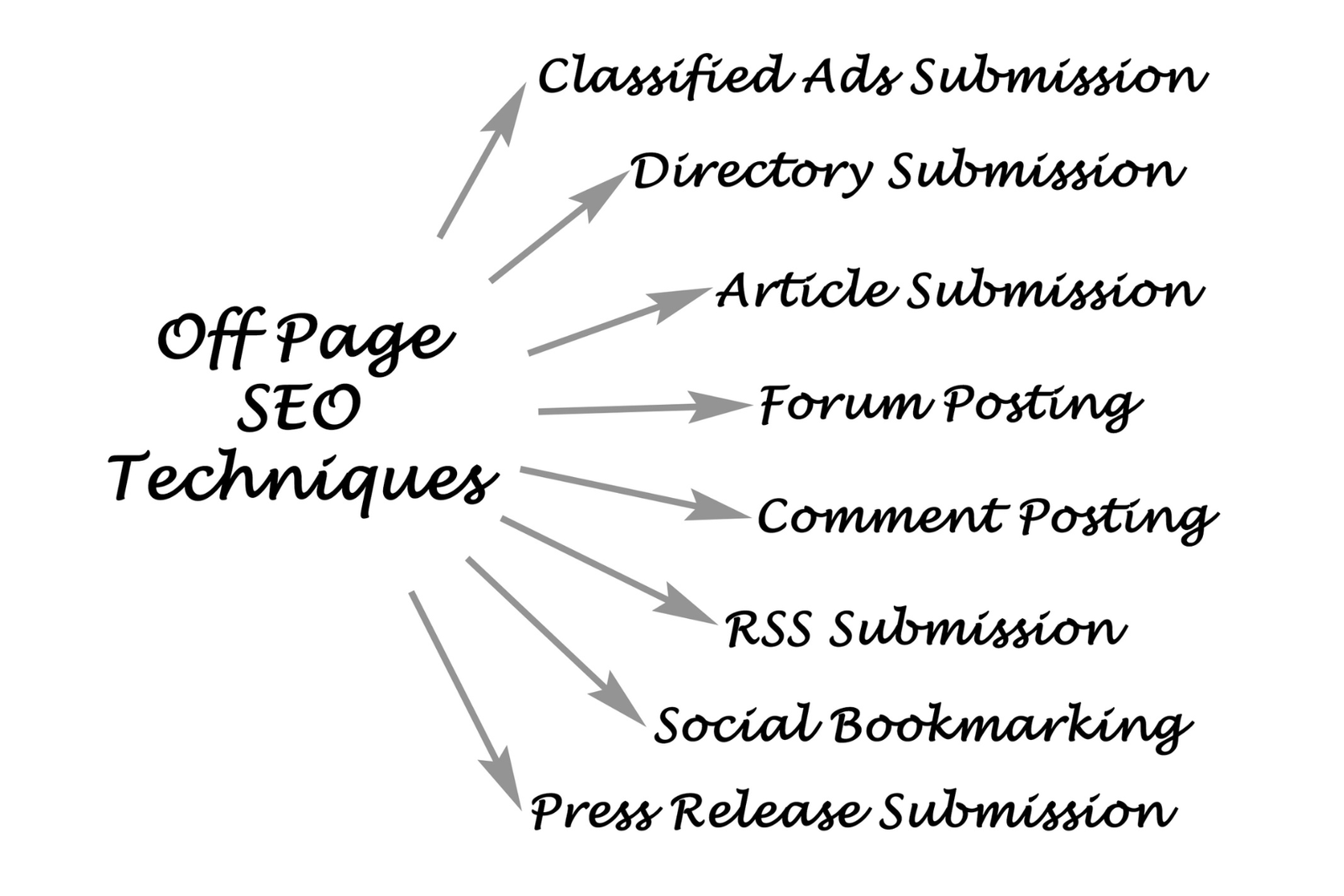The SEO Game-Changer: The Digital Marketing Navigator
In today's fast-paced digital landscape, mastering the art of Search Engine Optimization (SEO) is not just an option; it's a necessity. SEO is the game-changer that can propel your online presence to new heights, and in this comprehensive guide, we will delve deep into the intricacies of SEO and its profound impact on the world of digital marketing.
Introduction to SEO
Search Engine Optimization, or SEO, is the practice of enhancing your website to rank higher in search engine results. It involves a multifaceted approach, incorporating various techniques and strategies, all aimed at making your website more visible to users searching for relevant content.
When it comes to SEO, the primary goal is to increase your website's visibility on search engine results pages (SERPs). By optimizing various elements of your website, you can achieve better rankings, driving more organic traffic. Whether you're a seasoned digital marketer or just starting, understanding the fundamentals of SEO is crucial for online success.

Image Title: Search Engine Optimization - A Game Changer
The Evolution of Search Engines
To truly grasp the importance of SEO, it's essential to understand the evolution of search engines. We'll take a journey through the history of search engines and explore how they've evolved into the sophisticated algorithms we rely on today, such as Google's PageRank. This historical perspective will help you appreciate the complexity of modern search engines.
Search engines have evolved from simple keyword-based systems to highly sophisticated algorithms. Google, in particular, has made tremendous strides in understanding and delivering relevant search results. As a result, SEO strategies have become more complex to align with the evolving algorithms. This progression emphasizes the need for a deep understanding of how search engines function and the strategies that can help you stay ahead of the curve.
Why SEO Matters
SEO is not just a buzzword; it's a critical factor in the digital marketing landscape. We'll explore why SEO matters and how it can significantly influence your online presence and business success. You'll come to understand that organic search traffic is a powerful driver for your online business.
SEO matters for several reasons. First and foremost, it's a source of free, organic traffic. When your website ranks high in search results, you attract users actively seeking information, products, or services related to your niche. This traffic possesses immense value, given that it's propelled by the specific intentions of users.
Additionally, SEO is a cost-effective digital marketing strategy. Unlike paid advertising, where you pay for every click, SEO has a compounding effect. The effort you invest today can continue to drive traffic and results over time, making it an excellent long-term investment.
Understanding the SEO Algorithm
The core of SEO is the enigmatic algorithm that powers search engines. We'll take a deep dive into this algorithm, unraveling its complexities, and revealing how it determines the ranking of websites. Understanding the algorithm's mechanics is fundamental for anyone aiming to succeed in SEO.
The SEO algorithm, which powers search engines like Google, is a sophisticated mathematical formula that determines the relevance and ranking of websites in response to user queries. It considers numerous factors, including the quality and relevance of content, the website's authority, user experience, and more.
To succeed in SEO, you must align your strategies with the factors that the algorithm values most. This includes creating high-quality, informative content, optimizing your website for user experience, and earning backlinks from authoritative sources. Keep in mind that the algorithm is continually evolving, so staying up-to-date with industry changes is crucial for maintaining your website's ranking.
On-Page SEO Strategies
Your website is your digital storefront, and on-page SEO involves optimizing it for both users and search engines. We'll explore on-page SEO strategies, which include fine-tuning your content, meta tags, and headers, and ensuring your website is user-friendly and loads swiftly. These techniques are essential for boosting your search engine ranking.
Optimizing your website's internal elements is a fundamental aspect of on-page SEO. This includes creating high-quality, informative content that's relevant to your target audience. Keyword optimization plays a significant role, ensuring that the words and phrases your audience uses to search are incorporated naturally into your content.
Meta tags, which include meta titles and meta descriptions, provide search engines with information about your content. Properly optimizing these tags can significantly impact click-through rates from search results. Headers, on the other hand, enhance the structure and readability of your content.
Lastly, the technical aspects of your website, such as its loading speed and mobile responsiveness, also impact your search ranking. Ensuring that your website is user-friendly across devices is a critical component of on-page SEO.

Image Title: Off-Page Search Engine Optimization (SEO) Techniques
Off-Page SEO Strategies
Off-page SEO focuses on what happens outside of your website. It's all about backlinks, link-building strategies, and external factors that impact your SEO. We'll delve into the world of off-page SEO, emphasizing the importance of quality backlinks and the role they play in elevating your SEO game.
Off-page SEO involves activities that occur off your website but influence its ranking. The most prominent factor in off-page SEO is backlinks. When respected websites link to your content, it sends a clear message to search engines that your content holds value and credibility.
Earning quality backlinks is a crucial aspect of off-page SEO. This can be achieved through various strategies, such as guest posting on reputable websites, creating link-worthy content, and networking within your industry.
Another off-page SEO factor is the online reputation and presence of your brand. Social media signals and mentions across the web can also influence your SEO. Managing your online reputation and engaging with your audience on social platforms are key aspects of off-page SEO.
The Power of Keywords
Keywords are the lifeblood of SEO. We'll delve deep into keywords' central role in SEO and how to conduct effective keyword research. Discovering the right keywords for your content ensures it aligns perfectly with what your audience is searching for.
Keywords represent the phrases and terms users input into search engines as they search for information, products, or services. The primary goal of keyword research is to identify the keywords and phrases most relevant to your niche and target audience.
Effective keyword research involves understanding search intent. This means recognizing not only what keywords are popular but also why users are searching for them. Creating content that aligns with the intent behind these keywords, can provide valuable information to your audience and improve your search engine ranking.
Content is King
In the realm of digital marketing and SEO, content reigns supreme. We'll underscore the significance of high-quality, engaging content as the bedrock of a successful SEO strategy. Learn how to craft content that captivates your audience and keeps them coming back for more.
Content creation is at the heart of your SEO efforts. High-quality, valuable, and engaging content not only attracts visitors but also keeps them on your site longer, reducing bounce rates.
When creating content for SEO, it's essential to focus on user intent. This means that your content should directly address the needs and questions of your target audience. By providing solutions, insights, or information that users are actively seeking, you establish authority and trust, which are critical factors in SEO success.

Image Title: Mobile Optimization - In Evolving Digital Marketing is a must
Mobile Optimization
With a significant portion of internet users browsing on mobile devices, optimizing your website for mobile users is not just a suggestion; it's a necessity. We'll delve into the intricacies of mobile optimization, emphasizing the importance of responsive design, mobile site speed, and other key factors that ensure a seamless mobile experience.
Mobile optimization has become a critical aspect of SEO due to the increasing number of users accessing the internet via smartphones and tablets. Search engines consider the mobile-friendliness of a website when determining its ranking.
Responsive design, which ensures that your website adjusts to various screen sizes, is a fundamental aspect of mobile optimization. Additionally, mobile site speed is essential. Slow-loading websites can frustrate mobile users, leading to higher bounce rates and lower search rankings. Therefore, optimizing for speed is crucial for both user experience and SEO.
Local SEO
For businesses with a focus on local clientele, prioritizing local SEO is of utmost importance. We'll discuss how local businesses can leverage SEO to enhance their visibility to potential customers in their immediate vicinity. You'll learn how to harness the power of local search to grow your business.
Local SEO is a specialized branch of SEO aimed at helping local businesses increase their online visibility for local searches. This holds particular significance for physical busiinteractionscluding eateries, shops, and service providers.
Key aspects of local SEO include optimizing your Google My Business profile, ensuring consistent business information across online directories, and encouraging customer reviews. These efforts help local users find and trust your business, ultimately driving more foot traffic and online conversions.
The Role of Social Media
The relationship between social media and SEO is profound. We'll examine how your social media presence and activity can positively influence your SEO. Social media can be a driving force behind increased website traffic and an improved online reputation.
Social media plays a vital role in the overall online presence of your brand. While social signals, such as likes, shares, and comments, are not direct ranking factors, they have an indirect impact on SEO. When your content is widely shared and engaged with on social media, it can lead to more backlinks and increased traffic to your website, both of which are beneficial for SEO.
Moreover, an active social media presence can improve your online reputation. Engaging with your audience and addressing their inquiries or concerns on social platforms demonstrates your commitment to customer satisfaction, which can lead to positive reviews and improved brand trust.
User Experience and SEO
User experience is not just a buzzword; it's a critical component of SEO. We'll explore how a well-designed, user-friendly website can boost your SEO ranking and enhance user engagement. Discover the importance of providing visitors with an intuitive and enjoyable experience.
User experience (UX) is a crucial element of SEO. Search engines aim to provide the best results for their users, which includes delivering websites that are easy to navigate and engaging.
A well-designed website with a clear, intuitive layout can reduce bounce rates and increase the time visitors spend on your site. These factors signal to search engines that your website provides value and a positive user experience. To enhance UX, focus on website speed, mobile responsiveness, clear navigation, and user-friendly design.

Image Title: Steps to Sucess - Goal, Think, Action, Sucess
Measuring SEO Success
To gauge the effectiveness of your SEO efforts, you need to measure success. We'll guide you on how to track key metrics, such as website traffic, bounce rates, and conversion rates using tools like Google Analytics. Monitoring these metrics is essential for understanding the impact of your SEO strategies.
Measuring SEO success is essential to determine whether your efforts are delivering the desired results. Google Analytics is a valuable tool for tracking key metrics, such as website traffic, the sources of that traffic, and user behavior on your site.
Website traffic is a fundamental metric to track, as it indicates the number of visitors your site receives. Bounce rates, which represent the percentage of visitors who leave your site after viewing only one page, provide insights into how engaging your content and user experience are. Conversion rates, such as sign-ups, purchases, or other desired actions, demonstrate the effectiveness of your SEO efforts in achieving your business goals.
Staying Updated in the SEO World
SEO is a dynamic field that constantly evolves. Staying updated is not just an option; it's a requirement. We'll provide invaluable tips and resources for keeping your SEO knowledge current and adapting to the latest trends and algorithm changes. In this rapidly changing landscape, staying informed is your path to SEO success.
The world of SEO is in a state of perpetual flux. Search engines regularly update their algorithms, and new trends and technologies continually reshape the digital marketing landscape. Staying updated in this dynamic environment is vital for maintaining and improving your search rankings.
To stay informed, follow industry news, participate in webinars and conferences, and engage with online communities of SEO professionals. Continual learning and adaptation are the keys to remaining competitive in the ever-changing SEO world.
Conclusion
In conclusion, SEO is the game-changer in the world of digital marketing. Mastering its intricacies is not just an option; it's a necessity for online success. With the right strategies and knowledge, you can propel your website to the top of search engine results and engage a wider audience. Embrace the power of SEO and watch your online presence flourish.
FAQs
1. What are the essential on-page SEO techniques to implement on my website?
Essential on-page SEO techniques include optimizing content, meta tags, and headers, ensuring your website is user-friendly and loads quickly. These techniques are fundamental for improving your search engine ranking.
2. How can I find the right keywords for my content?
Discovering the right keywords involves using keyword research tools and analyzing your target audience's search habits. This research ensures that your content aligns with what your audience is looking for.
3. Is social media essential for SEO?
Yes, social media presence and activity can positively influence your SEO. Social signals can drive traffic to your website and improve your online reputation.
4. What is the best way to measure the success of my SEO efforts?
You can measure the success of your SEO efforts by tracking key metrics like website traffic, bounce rates, and conversion rates using tools like Google Analytics.
5. How often should I update my SEO strategies to stay competitive?
SEO is a dynamic field, so it's recommended to stay updated regularly. Major updates might require adjustments every few months, but continuous monitoring is vital to stay competitive in the ever-evolving SEO landscape.









Connect With Us On Social Media
Facebook
Twitter
Instagram
Linkedin
Youtube